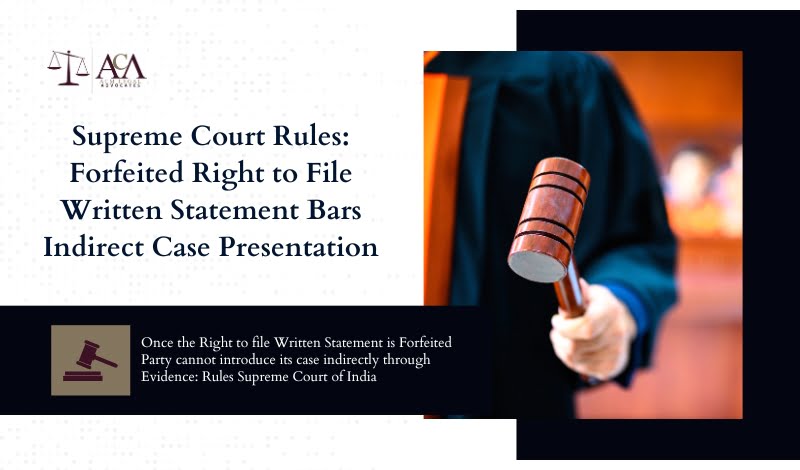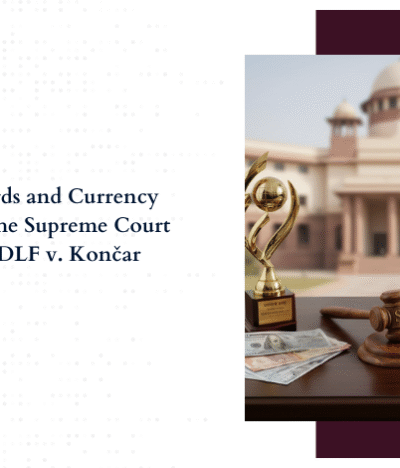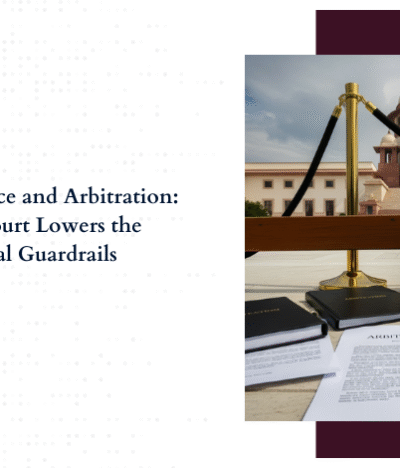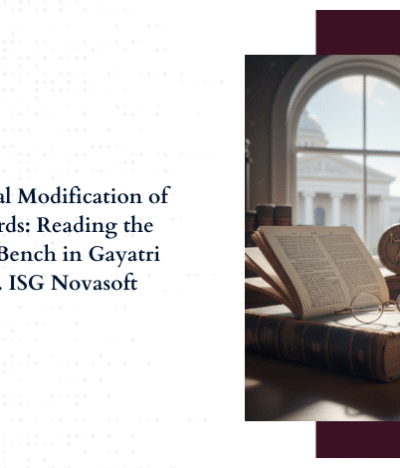In a recent decision, the Supreme Court has ruled that a party who has forfeited the right to file a written statement in a case is prohibited from indirectly presenting their case through evidence or written submissions. This ruling emphasizes that such a party, while still allowed to participate in the proceedings and cross-examine the complainant, cannot circumvent the forfeiture by introducing their case in any indirect manner. The court’s decision aims to uphold the procedural integrity of legal processes and ensure that forfeiture consequences are respected.
Facts
In the present consumer case,46 appellants along with respondents no. 2-6 filed a case against Respondent No.1, a builder, alleging a deficiency in service concerning the ‘Fiesta Homes by SJR Prime’ project. The complainants had entered into a Construction Agreement with Respondent No.1, which stipulated that the flats would be handed over by March 2014, with an additional grace period of six months. However, the possession of the flats was significantly delayed, and the complainants ultimately received the flats approximately four years past the due date. Consequently, in May 2019, the complainants filed Consumer Complaint. Upon review, the National Consumer Disputes Redressal Commission (hereinafter referred as “NCDRC”) determined that there was indeed a delay in handing over the flats to the appellants.
Issues
The main issues in front of the Apex Court were (i) whether the delay in handing over possession of flats entitles the complainants to compensation and (ii) whether the NCDRC correctly calculated the due date for possession and the compensation for the delay.
Analysis
The NCDRC declared that the respondent forfeited the right to file a written statement due to delays. It was found that the delay in handing over possession warranted compensation and ordered the developer to pay interest at 6% per annum from the due date for possession in September 2014 until the date the complainants were offered possession. The NCDRC declined to interfere with the refund claim for car parking charges. The appeal was partially allowed, modifying the compensation formula to include interest at 6% per annum from the due date for possession. The Learned Commission correctly found that the delay in possession entitled the complainants to compensation as per the Construction Agreement. The NCDRC’s calculation of the due date for possession and the compensation was deemed just and reasonable. The NCDRC’s decision to award interest at 6% per annum was based on precedent and upheld in this case.
The court referred to the decision in Nalini Sunder v. GV Sunder, the Karnataka High Court judgment which stated that the defendant would not be allowed to bring forth anything admissible considering the consequences of forfeiting the right to file a written statement. Essentially, the court ruled that the defendant, or opposite party, is prohibited from establishing a case through evidence that was not submitted in the initial pleadings. The court emphasized that allowing a party to introduce evidence without a foundational basis in the pleadings would undermine the procedural integrity and fairness of the legal process. This decision reinforces the principle that pleadings set the framework for the issues to be adjudicated, and any attempt to introduce new claims or defenses without prior inclusion in the pleadings cannot be permitted.
The division bench comprising of Justices CT Ravikumar and Sanjay Kumar clearly stated that “In the absence of any specific provisions dealing with non-filing of written statements/forfeiture of the right to file a written statement, taking note of the general position as above, it can only be held that it should bar the opposite party in a proceeding before the Consumer Redressal Forums to bring in pleadings, indirectly to introduce its/his case and evidence to support such case.”,
According to Order 6 Rule 7 of the Civil Procedure Code, 1908, a defendant is permitted to present claims consistent with their previous pleadings. However, if the right to file a written statement has been forfeited, the defendant cannot indirectly introduce their case through new pleadings. The court stated that once the right to file a written submission is forfeited, the defendant is barred from presenting their case via written submissions. Nonetheless, this forfeiture does not preclude the defendant from participating in the proceedings or cross-examining witnesses, as referenced in the case of Nanda Dulal Pradhan & Anr. v. Dibakar Pradhan & Anr
In the given consumer dispute following a Supreme Court order, the respondent/defendant forfeited the right to file a written statement. Despite this, the defendant was given freedom to choose whether to participate in the proceedings. The defendant cross-examined the witness and submitted documentary evidence without having previously presented their case through a written statement.
The judgment clearly stated “the defendant could only be allowed to argue the legal questions arising based on authorities and provisions of law as also regarding lapses or laches and the consequential non-admissibility or otherwise of evidence, let in by the appellants.” As the NCDRC did not consider the defendant’s written statements in its decision, the Court declined to interfere with this aspect of the commission’s order. Consequently, the appellant’s challenge to the NCDRC’s decision, which allowed the defendant to file a written statement despite forfeiting that right, became inconsequential. The NCDRC’s decision to award compensation for the delay in handing over possession of flats and to calculate interest at 6% per annum was upheld. The appeal was partially allowed, modifying the compensation formula as detailed above.
Conclusion
In conclusion, the Supreme Court’s decision underscores the importance of adhering to procedural rules in legal proceedings. By ruling that a party who has forfeited the right to file a written statement cannot indirectly present their case through evidence or written submissions, the court has reinforced the necessity of maintaining the integrity and fairness of the legal process. The NCDRC’s decision, which awarded compensation to the complainants and calculated interest at 6% per annum for the delay, was upheld by the Supreme Court. The court’s refusal to allow the defendant to circumvent the forfeiture of their right to file a written statement by introducing their case indirectly serves as a precedent for ensuring that the procedural rules are respected and that justice is administered fairly.






